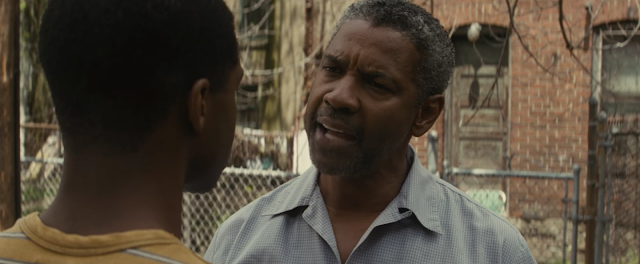Fences: When the Walls Tumble Down, Resentments Bubble Up
Denzel Washington is a rock. That’s true of both his body of work and his actual body. Physically, he’s built like a finely chiseled piece of granite, with broad shoulders, flinty eyes, and a handsome face that occasionally breaks into a broad, beaming smile. And commercially, few movie stars are so ruggedly reliable. (How many other actors could have carried The Equalizer to $100 million, much less inspired demand for a sequel?) Washington’s consistency is often mistaken for redundancy, given that he typically portrays heroic authority figures defined by their unwavering competence; even when he played against type in Training Day, he was supremely charismatic. But in some of his best roles (Courage Under Fire, Flight), he allows tendrils of doubt and weakness to creep through the façade of proficiency and strength. In Fences, Washington delivers a towering performance that represents the apex of this duality—never before has he seemed so indomitable and, at the same time, so broken.
Which is not to say that Fences is a great movie. In a sense, it is barely a movie at all. A faithful adaptation of August Wilson’s Pulitzer-winning play, Fences’ dogmatic fidelity to its source arguably renders it a better fit for the stage than the screen. The third feature directed by Washington, it consists of a series of dialogue-heavy scenes, the bulk of which could be neatly subdivided into a handful of acts. Action is limited, as is Marcelo Zarvos’ muted score. The majority of the chatter takes place in a single house’s kitchen and backyard, with a few additional locations mixed in for variety. The camera remains relatively passive; when it does move, it does so fluidly via the Steadicam, rather than the handheld style favored by many art-house filmmakers. Read More

